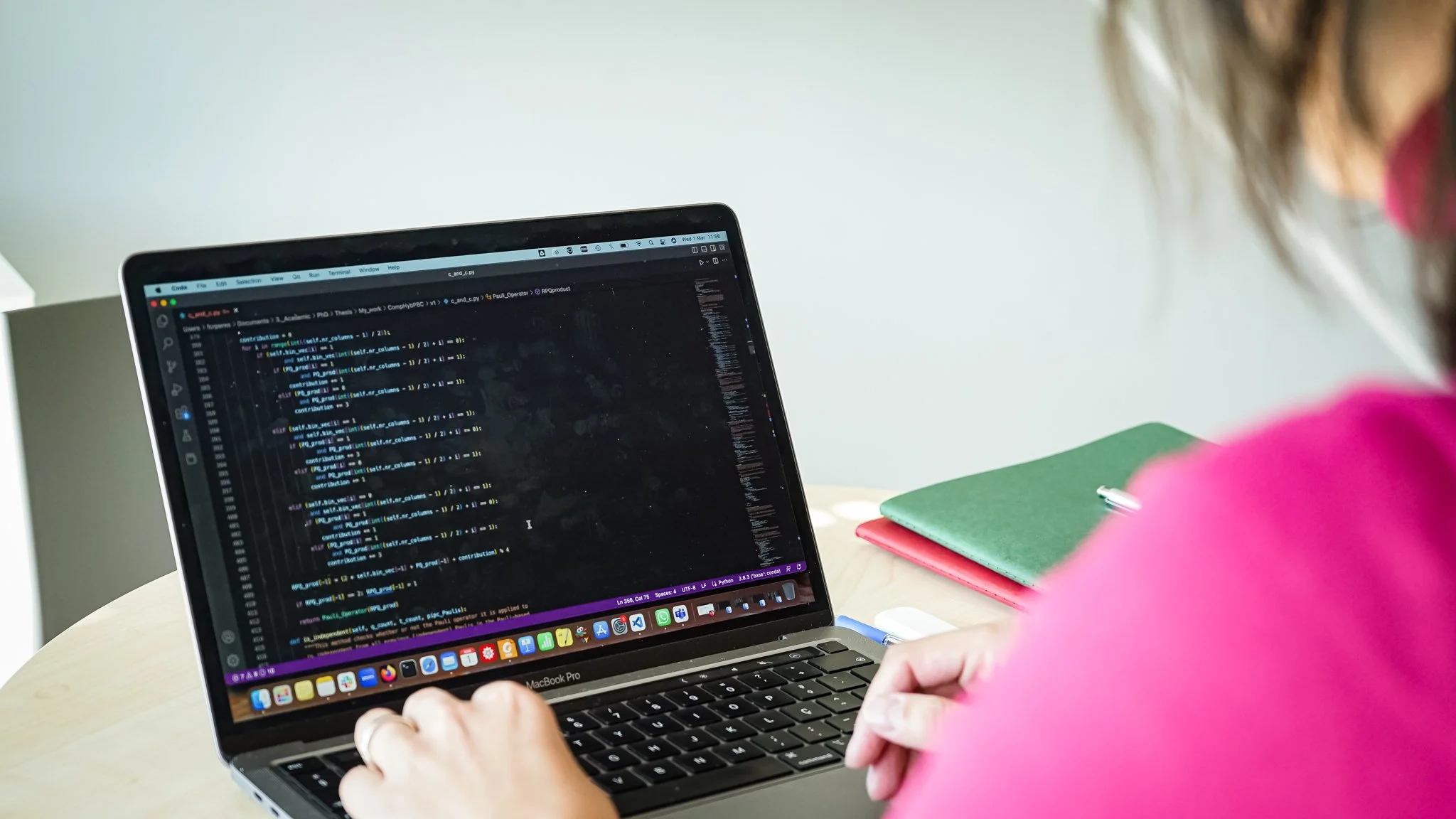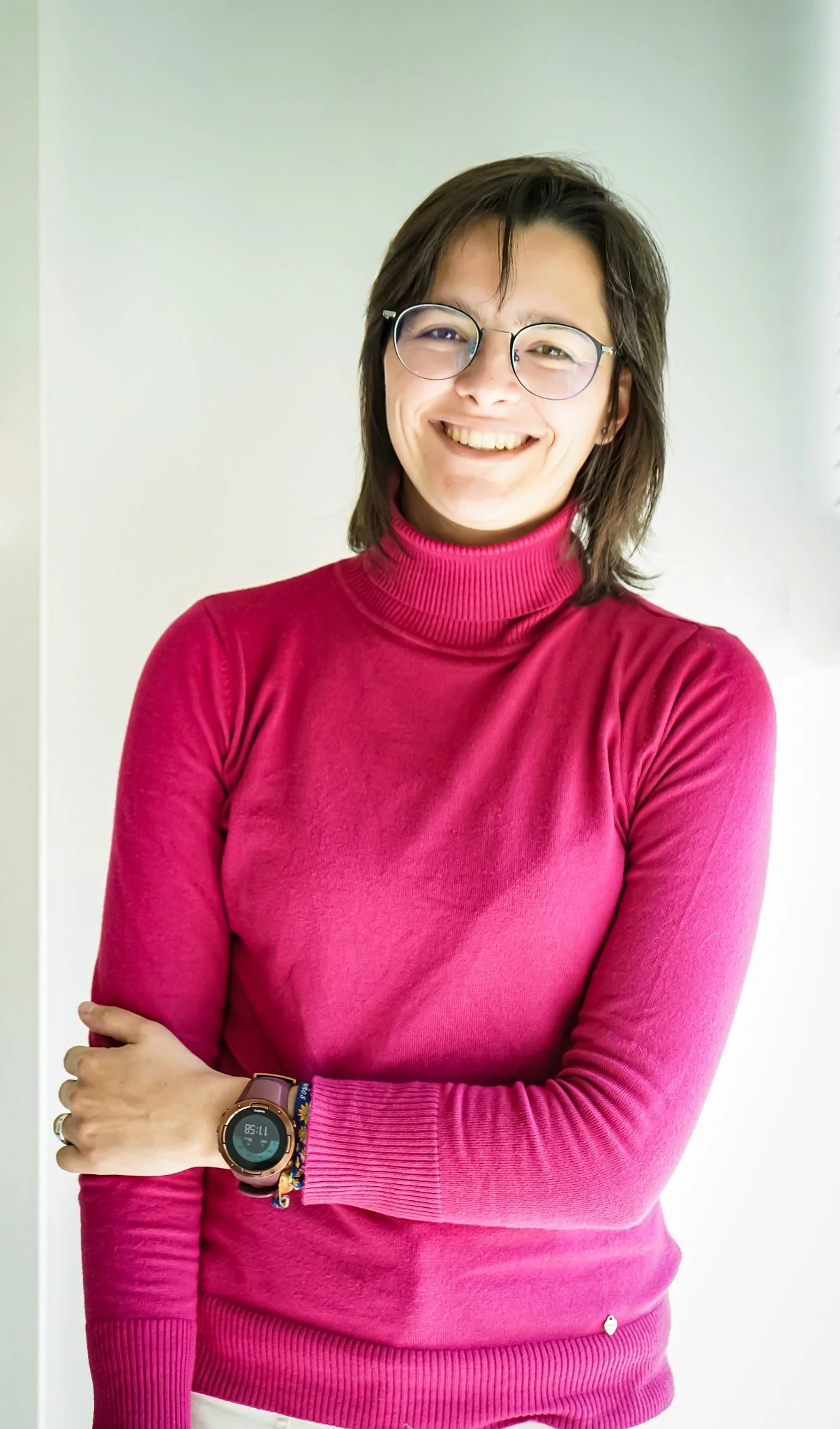
Filipa Peres, building a path on rationalising, explaining and predicting new phenomena
March 15, 2023
We continue to spotlight women in STEM with this new interview series with Women working in/with Science at INL – International Iberian Nanotechnology Laboratory. It is essential to celebrate the outstanding contributions women make to science.
Meet Filipa Peres. She joined INL – International Iberian Nanotechnology Laboratory in January of 2021 as a PhD student co-hosted together with the University of Porto. She develops her research in the Quantum and Linear-Optical Computation theoretical research group and she focuses her research on developing new models for hybrid quantum-classical computation.
Filipa, can you tell us a bit about your path and your main area of work?
I have a BSc and a Master’s degree in Physics from the University of Minho. My Master’s dissertation was in the field of high-energy physics; in particular, I was interested in learning the properties of the quark-gluon plasma – the state of matter which is thought to have existed in the primordial universe, shortly after the Big Bang. The way we have to study this plasma now is through the study of heavy-ion collisions in large colliders at CERN. However, this is not without its difficulties since the quark-gluon plasma is very short-lived, preventing us from probing it directly. In my dissertation, I addressed some of these challenges by proposing the use of visual and machine-learning tools.
Currently, I am in the middle of my PhD, hosted jointly by the University of Porto and INL, in the area of quantum computation. My goal is to propose new models in which a classical and a quantum computer can work together to bring enhanced computational power. I find this field very exciting! It is very competitive, dynamic, and fast-growing. It is also very challenging because it involves many different areas of science and engineering from physics and mathematics to computer science and informatics, etc.
Did you have a role model that influenced your decision to work in science?
My father is a physics professor at the University and my mother is a physics and chemistry teacher in high school so, during my earlier studies, it was easier to have support. Additionally, most of the adults that I met while growing up also worked in those fields. Therefore, I had a strong representation of what life looked like for someone who followed the exact science path, whilst I had no equivalent representation of other options.
That said, I also always had a strong inclination towards mathematics and physics; I understood them and they clicked in my mind in a way that other subjects, like philosophy, did not. But to answer your question, I don’t think I had a specific role model that influenced my decision and, if anything, having such close proximity to people working in physics, might even have deterred me at first. In fact, it took me three University enrollments, first medical school and then mathematics, before I finally followed physics. I think this last bit is important for young people to realize.
No decision we make is final, and we can always change our minds if we are not happy with the path we find ourselves along. This might take some pressure off of some of the choices that we need to make.
What is a typical day for you?
As a theorist, I am lucky in that I can work from almost anywhere, as long as I have access to the internet and some quietness. Some days I can work from home, while on others I go to INL. Whenever I do that, I either take my bike or walk, to get fresh air and move a bit before standing at my desk. Mostly, my workday involves either doing calculations, writing code to help me find the solution to some problem, reading new articles, and/or studying what other people are doing to understand how I can give new contributions. Less often, there are days with workshops and lectures, or we need to attend conferences and discuss our work with other scientists. I love those days just as much!
After I am done with work, I like to go for a hike, run or take a pilates class. I usually finish the day by reading some pages of a book. I find that this work-life balance is very important to keep the mind sharp and prevent things like burnout.
Briefly, what excites you about your next projects?
Everything! The fact that I will certainly learn something and know that I will contribute to this extraordinary field even if in some small way. I think this is actually an important point for anyone considering a research career in science: the one prerequisite is to be passionate about the field and about learning! Because essentially, that’s a big part of what research is: you are continuously studying and learning and at some point, you discover (learn) new things that no one else in the world knows yet. That’s when you get to publish your results for the whole community to see. It is extremely rewarding.







